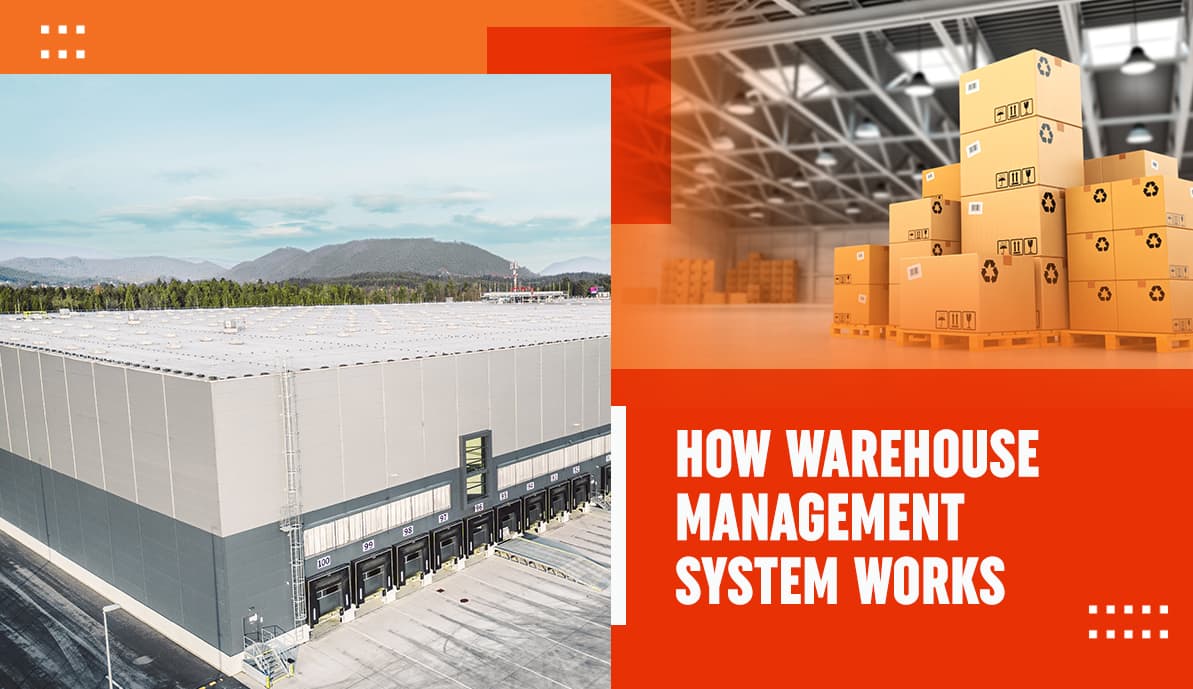A warehouse is more than a storage space. It plays a key role in smooth supply chain operations. If products are not stored, tracked, and moved properly, delays happen. That’s where a Warehouse Management System (WMS) comes into play. In this blog, you will learn how a WMS works, why it matters, and how it helps businesses grow.
What Is a Warehouse Management System?
A Warehouse Management System is software. It helps manage day-to-day operations inside a warehouse. It tells workers where to store products, how to find them, and when to move them. It makes the entire storage process smooth. Without it, tracking inventory becomes confusing. Errors in picking or shipping can lead to losses. Many modern WMS solutions are cloud-based. They update in real time. This helps managers make quick and informed decisions.
Core Functions of a WMS
A WMS helps control several key tasks inside a warehouse. Let’s take a look at the most important ones.
- Inventory Tracking: It keeps count of each item. Managers can see what’s in stock and what needs restocking.
- Order Management: It matches customer orders with available products. This reduces delays in shipping.
- Picking and Packing: It tells workers where products are stored. This improves speed and reduces errors.
- Shipping Management: It helps organize dispatches. This ensures timely delivery to the customer.
If you are investing in a warehouse for sale in Kolkata, having a clear understanding of these features helps. It ensures you choose a space that supports modern WMS tools.
Integration with Other Systems
A WMS does not work alone. It connects with other tools in the business system. This includes accounting software, ERP systems, and CRM platforms. This integration improves visibility across departments. When sales and warehouse teams are on the same page, operations improve. It also reduces manual data entry. This lowers the chance of mistakes. Business owners can focus more on planning and growth. When buying commercial properties for sale, check if the space supports such system integration. It affects long-term business performance.
How WMS Improves Warehouse Efficiency?
A warehouse is not just a storage unit. It’s a hub for shipping, receiving, and inventory management. A WMS ensures everything moves in sync.
Real-Time Inventory Visibility
Manual inventory systems can’t keep up with fast-moving products. A WMS updates stock levels in real-time. This helps avoid stockouts and overstocking. Managers can track how much is stored and where. This saves time during sudits and improves planning. It also helps prevent theft and loss. This kind of smart tracking is a must is you’re planning to invest in a warehouse for sale in Kolkata. A good warehouse must support automation.
Faster Order Fulfillment
Speed matters in logistics. A WMS helps teams find and pack items quickly. It cuts down the time between order and delivery. It also reduces errors. Wrong deliveries can damage your brand. With the WMS guiding each step, customer satisfaction improves. It’s also a smart move to look for commercial properties for sale that are built with such features in mind. Properties with better layout support faster movement and fewer delays.
Labor Management and Task Automation
A WMS assigns tasks to workers based on priority and location. This avoids confusion and saves time. It also reduces idle time between tasks. Some systems can even track worker productivity. This helps plan shifts better and boosts efficiency. Less manual work also means fewer errors. If you are exploring a warehouse for sale in Kolkata, consider one that allows space for automation tools like scanners and RFID readers.
Key Benefits of a Warehouse Management System
Now that we know how a WMS works, let’s look at what businesses gain from using one. These benefits are not just for large companies. Even small businesses can benefit from better warehouse control.
Lower Operating Costs
A WMS reduces waste and improves space usage. It also lowers labor costs by assigning tasks smartly. You need fewer people to do more work. It also prevents product spoilage or damage. This means fewer returns and better customer trust. You save money in the long run. If your goal is to run a warehouse in the city, look for a warehouse for sale in Kolkata that supports these cost-saving measures.
Better Decision-Making
When data is accurate and timely, business owners can plan better. A WMS gives reports on sales, orders, and stock levels. This helps predict demand and avoid stock issues. It also shows which products sell fast and which don’t. If you’re planning to expand your business, smart choices begin with smart spaces.
Improved Customer Satisfaction
Customers want fast and accurate deliveries. A WMS helps achieve this by reducing errors and delays. It also allows better tracking. Customers get real-time updates on their orders. This improves trust and keeps them coming back. A happy customer base means a growing business. That’s why choosing the right warehouse for sale in Kolkata is more important than ever.
The Bottom Line
A Warehouse Management System is more than just a tool. It is the engine behind smooth and fast operations. It helps businesses cut costs, improve speed, and keep customers happy. Before buying a warehouse, make sure it supports the latest WMS tools. This decision can shape your long-term growth. Choose wisely, plan ahead, and let smart systems work for you.









